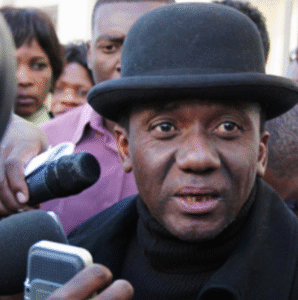A CONTROVERSIAL APPOINTMENT: ZIMBABWE’S ANTI-CORRUPTION DRIVE UNDER SCRUTINY

In an audacious move that has sparked widespread controversy, President Emmerson Mnangagwa of Zimbabwe proceeded to swear in Deputy Prosecutor-General Michael Reza as the new chair of the Zimbabwe Anti-Corruption Commission (Zacc), succeeding Justice Loice Matanda-Moyo who has been appointed as Prosecutor-General. This appointment has ignited a public uproar, with many asserting that it not only undermines the integrity of Zacc but also violates the country’s constitution.
Zimbabwe’s Anti-Corruption Commission, a pivotal institution in the fight against corruption, finds itself at a crossroads. The commission, envisioned as a beacon of transparency and legality, now appears compromised under the leadership of Michael Reza, casting a shadow of illegality over its operations. The controversy primarily stems from allegations that Reza’s appointment blatantly disregards the constitutional requirements for such a position.
According to the constitution, a Zacc commissioner, especially one with a legal background, is required to have at least seven years of legal practice, eligibility for a judge’s appointment, or experience as a High Court or Supreme Court judge. However, Reza, who only registered to practice law in Zimbabwe between 2020 and 2021, falls short of this requirement, boasting merely three to four years of legal experience. Despite his academic qualifications, holding a Bachelor of Laws (LLB) degree from the University of South Africa and a Master of Laws (LLM) from Midlands State University, his legal practice experience does not meet the constitutional benchmark for a Zacc commissioner, let alone its chairperson.
The president’s decision to appoint Reza under the premise that a commissioner can be selected based on ten years of experience in crime investigation does little to quell concerns, especially in the absence of any other commissioner within Zacc who meets the constitutional requirement of seven years of legal practice. This situation leaves the commission without the necessary legal expertise, undermining its credibility and effectiveness.
Reza’s appointment has polarized opinions, with some defending his qualifications based on his extensive experience in crime investigation. Yet, critics argue that regardless of his experience in other fields, Reza does not meet the fundamental legal requirements for his new role. Furthermore, his involvement in various controversies, including allegations of persecuting opposition activists and leaders through legal means and involvement in corruption cases, adds another layer of contention to his suitability for the chairmanship of the anti-corruption body.
This development raises significant questions about the commitment of Zimbabwe’s leadership to upholding the constitution and the integrity of its institutions tasked with combating corruption. The appointment of Michael Reza, against a backdrop of constitutional requirements and amidst public dissent, signifies a critical juncture for Zimbabwe. It challenges the nation’s resolve to fight corruption effectively and safeguard the rule of law, essential pillars for democratic governance and public trust.
As Zimbabwe grapples with this contentious appointment, the international community and Zimbabweans alike watch closely. The outcome of this saga will not only affect the operational efficacy of Zacc but also shape the perception of Zimbabwe’s dedication to transparency, legality, and the uncompromising fight against corruption.




